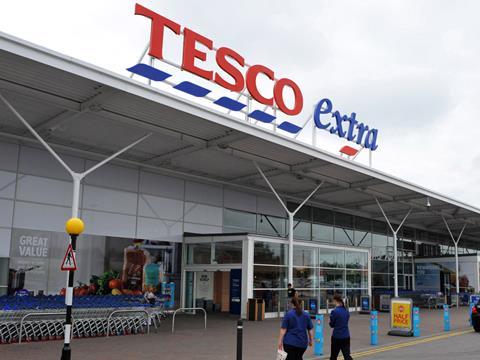
Tesco shares continued to come under pressure this week as its profits were hit by its battle to retain market share amid soaring inflation.
Revenues, excluding VAT and fuel, in the 26 weeks to 27 August increased 3.1% to £28.2bn, with a 3.2% rise on a like-for-like basis. Fuel sales soared 38.4% to £4.3bn, pushing total group revenues up 6.7% to £32.5bn.
A 2.7% rise in like-for-like sales in the UK & Ireland was mostly driven by a 13.9% jump at Booker, particularly from the catering side of the operation, while Central European sales also increased 10.4% in the half.
Growth accelerated in the second quarter as higher prices kicked in, but Tesco’s position is increasingly competitive thanks to its Aldi Price Match, Low Everyday Prices and Clubcard Prices schemes.
However, its price investment meant adjusted operating profits fell 9.8% to £1.3bn, as volumes normalised from elevated pandemic levels and non-food sales slumped 6%. Tesco also said it saw significant cost inflation and some impact from a rise in own-label sales, as customers took steps to manage pressure on budgets. Meanwhile, statutory pre-tax profits fell 63.9% to £413m following a £626m non-current asset impairment charge.
Additionally, Tesco marginally forecast down its full-year profits, predicting a range of between £2.4bn-£2.5bn after previously setting a range of £2.4bn-£2.6bn.
Shore Capital said were marginally ahead of expectations, noting: “Maintaining its 2023 profit guidance… will be a relief moment for the market, albeit a narrower range”. Retail analyst Nick Bubb added: “Tesco may have nudged down its full-year profit guidance, but at least it seems to be weathering the cost-of-living storm better than its upscale rival Waitrose.”
However, Tesco shares lost 4.1% of their value to drop close to 201.3p on Wednesday, and nudged below 200p on Thursday close to multiyear lows.
Hargreaves Landsdown suggested the market was concerned “pressures on consumer spending can only build for so long before something must give”. It said: “That pain’s slowly starting to feed into performance, as shopping behaviours continue to normalise from bumper levels seen over the pandemic and inflation keeps costs high.”
Edison Group added: “Higher staffing and energy costs are likely to put further pressure on Tesco’s margins. Rising petrol prices will additionally add to delivery and logistics costs, potentially making it increasingly difficult for the group to remain competitive with other cheaper brands.”
Tesco shares are now down by almost a third year to date, and have lost more than 20% over the past month as pressure on consumer budgets intensifies.







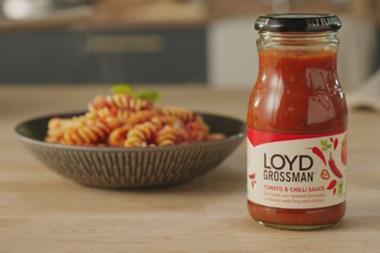
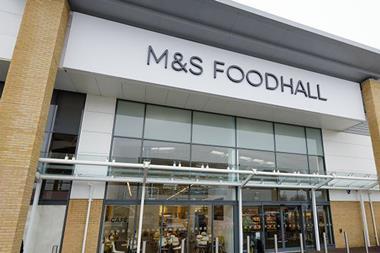
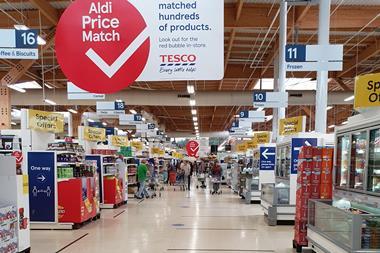
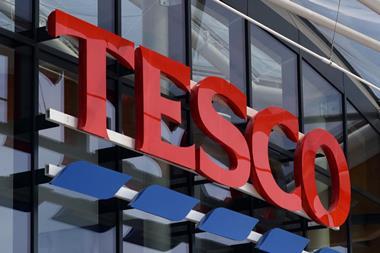
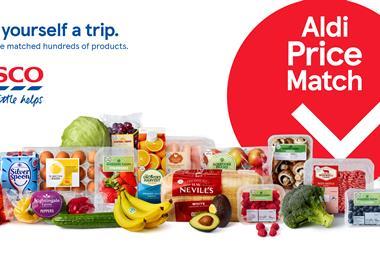
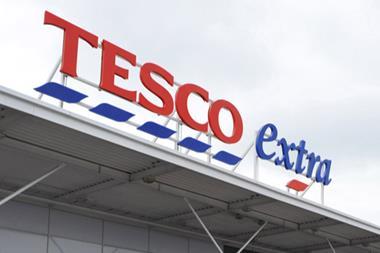






No comments yet